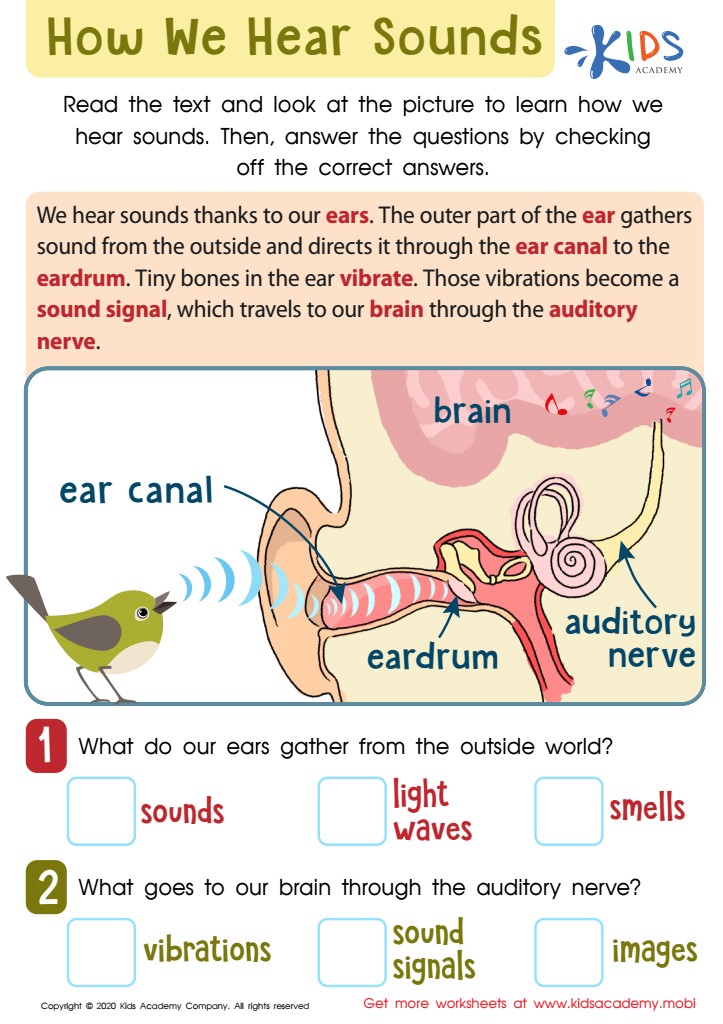Learning about human hearing Worksheets for Kids
1 filtered results
-
From - To


How We Hear Sounds Worksheet
Question/Answer
What does the Learning about human hearing skill mean when it comes to Grade 1 Physical Science learning?
The "Learning about human hearing skill" in Grade 1 Physical Science involves introducing students to the basics of how humans hear. This includes understanding the parts of the ear, how sound is transmitted through air and enters the ear, and how the brain interprets these signals as sound.
Why is the Learning about human hearing skill important for Grade 1 students?
Learning about human hearing in Grade 1 is important because it helps students understand how they perceive sounds, fostering awareness of their senses and encouraging safe listening practices.
How does the mastery of the Learning about human hearing skill affect a student's performance at an early age?
Mastery of the Learning about Human Hearing skill at an early age can significantly enhance a student's performance by improving their auditory processing abilities, increasing their attention and concentration, enhancing language development and reading skills, and fostering better communication. This foundational understanding can also stimulate curiosity and a positive attitude towards learning more about science and the human body.
 Assign to the classroom
Assign to the classroom











